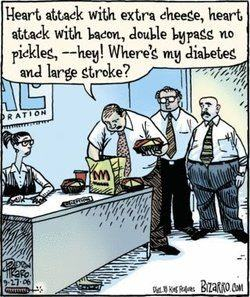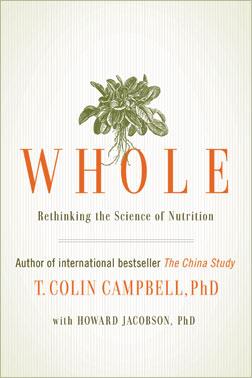Heart |
Cancer |
Diabetes |
Alzheimer's Dimentia |
Prostate Cancer |
Stroke |
Bladder Infection |
Fibromyalgia
Unrefined Plant Food = Whole Food = Plants from the ground that haven't been processed.
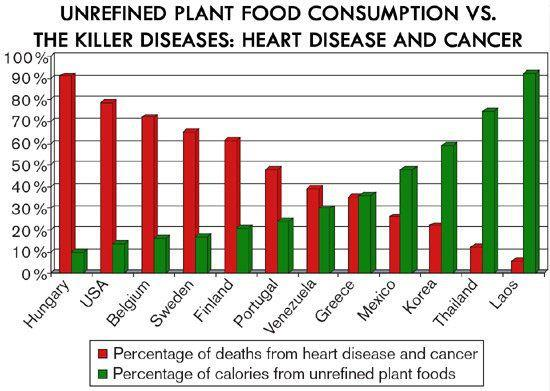
In Hungary they eat a lot of processed foods and few vegetables and their percentage of deaths from disease is extremely high. In Laos where they eat a lot of grain and vegetables right out of the ground, the opposite is true.

In Hungary they eat a lot of processed foods and few vegetables and their percentage of deaths from disease is extremely high. In Laos where they eat a lot of grain and vegetables right out of the ground, the opposite is true.
HEART
President Bill Clinton's Doctors speak to CNN about the plant-based diet that reversed his life-threatening heart condition.
Articles
President Bill Clinton's Doctors speak to CNN about the plant-based diet that reversed his life-threatening heart condition.
-
Journal of the American Heart Association, 2/2013.
2013 is a different world from the 1992-1993 world sampled in the Fretts' study. There is an active and growing grass roots, patient-driven movement underway that recognizes the health benefits of a plant-based diet, with an increasing number of authoritative physician-and dietitian-led websites, recipe sites, and social media support groups available to both educate and sustain the necessary dietary changes. Both authors of this editorial have experienced significant weight loss and seen personal improvements in cardiovascular biomarkers while following a plant-based diet, and have found it easy to follow.
-
 Eggs, Too, May Provoke Bacteria to Raise Heart Risk, New York Times, 4/2013
Eggs, Too, May Provoke Bacteria to Raise Heart Risk, New York Times, 4/2013
For the second time in a matter of weeks, a group of researchers reported a link between the food people eat and bacteria in the intestines that can increase the risk of heart attacks.
Two weeks ago, the investigators reported that carnitine, a compound found in red meat, can increase heart disease risk because of the actions of intestinal bacteria. This time they reported that the same thing happens with lecithin, which is abundant in egg yolks.
The lecithin study, published Wednesday in The New England Journal of Medicine, is part of a growing appreciation of the role the body?s bacteria play in health and disease. With heart disease, investigators have long focused on the role of diet and heart disease, but expanding the scrutiny to bacteria adds a new dimension. More…
Eggs, like meat and dairy, are the new cigarettes. Lies, product placement and bribery have lead people to believe they are harmless.
Eggs and Cholesterol: Patently False and Misleading Claims, NutritionFacts.org
"Egg industry claims about egg safety found to be patently false, misleading, and deceptive by the U.S. Court of Appeals." -
Cholesterol Primer, Oxford Medical Research Analysis.
There are few guarantees in life, but having a blood cholesterol level of less than 150 is probably the closest you can get to a guarantee that you will not be troubled with heart disease. One of the more interesting findings from the Framingham Heart Study is that no one in the history of the study has ever had a heart attack whose blood cholesterol was less than 150. If you can get your cholesterol under 150 you don?t even have to concern yourself with the further breakdown of ?good? and ?bad? cholesterol analysis.?
Simply put, as the level of total cholesterol begins to exceed 150-160, the HDL level and cholesterol/HDL ratio begins to be a risk factor and gradually increases in importance as the cholesterol count goes higher.
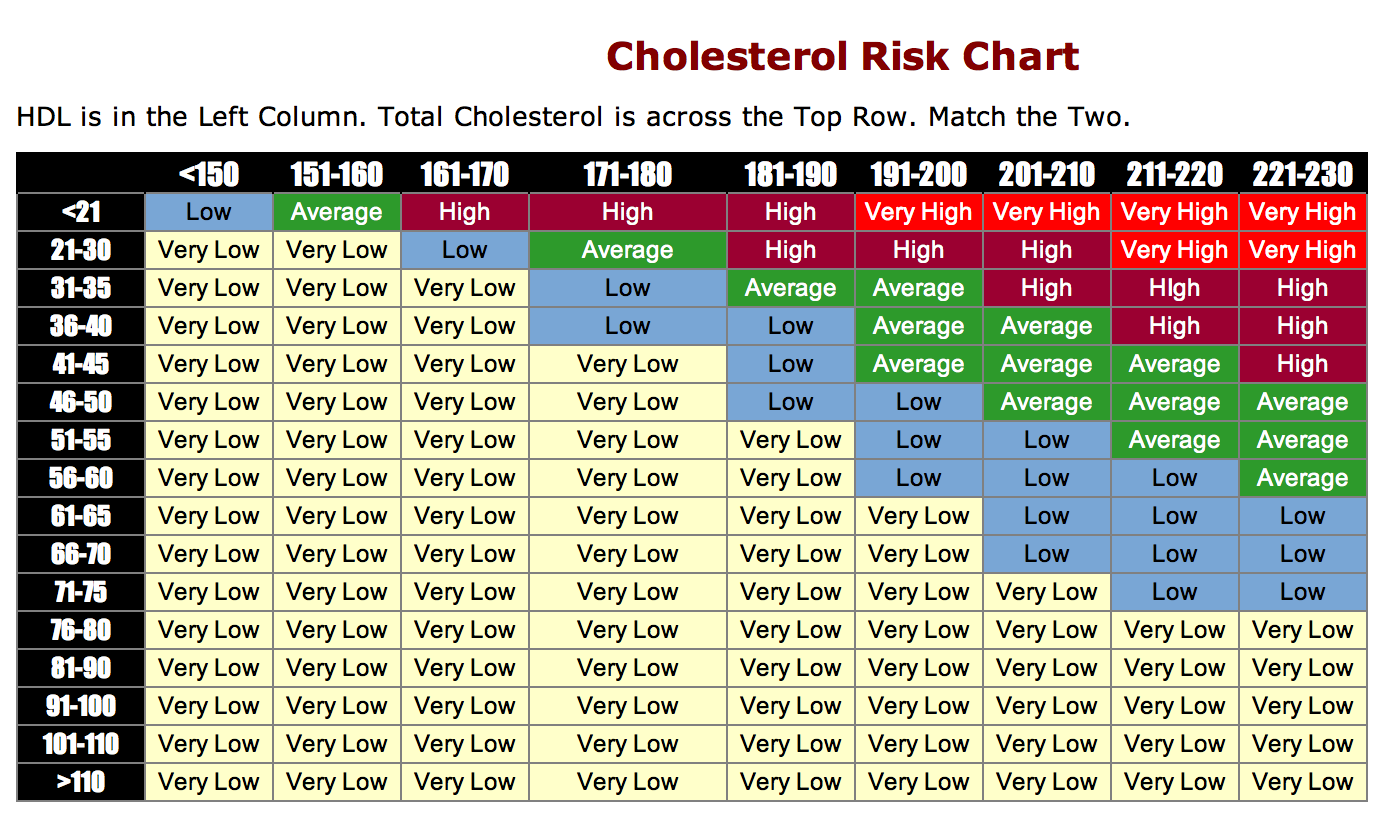
-
Vegetarians 'cut heart risk by 32%' —BBC News, 1/30/2012
A study of 44,500 people in England and Scotland showed vegetarians were 32% less likely to die or need hospital treatment as a result of heart disease.
Differences in cholesterol levels, blood pressure and body weight are thought to be behind the health boost.
The findings were published in the American Journal of Clinical Nutrition
Heart disease is a major blight in Western countries. It kills 94,000 people in the UK each year - more than any other disease, and 2.6 million people live with the condition.
The heart's own blood supply becomes blocked up by fatty deposits in the arteries that nourish the heart muscle. It can cause angina or even lead to a heart attack if the blood vessels become completely blocked. -
Pomegranate To Prevent Coronary Artery Disease Progression, 6/2013
A new study published in the journal Atherosclerosis confirms that pomegranate extract may prevent and/or reverse the primary pathology associated with cardiac mortality: the progressive thickening of the coronary arteries caused by the accumulation of fatty materials known as atherosclerosis.
- Remarkably, the researchers also found that pomegranate extract treatment resulted in the following beneficial effects:
- Reduced levels of oxidative stress
- Reduced monocytie chemotactic protein-1, a chemical messenger (chemokine) associated with inflammatory processes within the arteries.
- Reduced lipid accumulation in the heart muscle
- Reduced macrophage infiltration in the heart muscle
- Reduced levels of monocyte chemotactic protein-1 and fibrosis in the myocardium
- Reduced cardiac enlargement
- Reduced ECG abnormalities
Most heart attacks are caused by unhealthy lifestyle.
Recent studies "blow away" the myth of bad genes.
"We can't cure this disease until we address the fundamentals of lifestyle." —Eric Topol, MD, study of 600,000 patients.
Recent studies "blow away" the myth of bad genes.
"We can't cure this disease until we address the fundamentals of lifestyle." —Eric Topol, MD, study of 600,000 patients.
CANCER
Breast Cancer
-
A Vegan Diet (Hugely) Helpful Against Cancer, Huffington Post, 12/2012.
A new study just out of Loma Linda University funded by the National Cancer Institute reported that vegans have lower rates of cancer than both meat-eaters and vegetarians. Vegan women, for example, had 34 percent lower rates of female-specific cancers such as breast, cervical, and ovarian cancer. And this was compared to a group of healthy omnivores who ate substantially less meat than the general population (two servings a week or more), as well as after controlling for non-dietary factors such as smoking, alcohol, and a family history of cancer.
Why do vegans have such lower cancer risk? This is fascinating stuff: An elegant series of experiments was performed in which people were placed on different diets and their blood was then dripped on human cancer cells growing in a petri dish to see whose diet kicked more cancer butt. Women placed on plant-based diets for just two weeks, for example, were found to suppress the growth of three different types of breast cancer (see images of the cancer clearance). The same blood coursing through these womens' bodies gained the power to significantly slow down and stop breast cancer cell growth thanks to just two weeks of eating a healthy plant-based diet! (Two weeks! Imagine what's going on in your body after a year!) Similar results were found for men against prostate cancer (as well as against prostate enlargement). More… -
Anti-Angiogenesis: Cutting Off Tumor Supply Lines
Cancer cells are commonly present in the human body, but cannot grow into large tumors without hooking up a blood supply. Angiogenesis inhibitors in plant foods may help prevent this from happening.
The cancer-promoting growth hormone IGF-1 is another angiogenic factor, helping tumors turn on the gravy train. This may be another reason plant-based diets protect against cancer, since as few as two weeks on a healthy diet can lower IGF-1 levels. -
Veggies vs. Cancer, Nutriton Facts, 12/2010
A landmark study pitted 34 common vegetables against 8 different lines of human cancer cells. More…
Breast Cancer
-
Two weeks on a plant-based diet appears to significantly enhance cancer defenses against breast cancer and colon cancer cells. The blood of those eating a vegan diet for a year suppresses cancer cell growth nearly eight times better. More. . .
-
Angelina Jolie, cancer, your genes and your fate, Jane Philpott MA (Oxon), MSc, PhD, 6/2013
I respect Angelina for making a choice which felt right for her and her family.
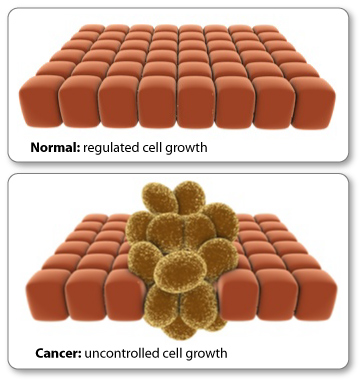 That is all any of us can do when faced with difficult decisions and the tsunami of judgement that has greeted her article is regrettable.
That is all any of us can do when faced with difficult decisions and the tsunami of judgement that has greeted her article is regrettable.
The story does, however, raise fascinating questions about whether we are really at the mercy of our genes.
One of the most exciting discoveries of modern science is that our DNA, the genome, responds dynamically to the environment.
Stress, diet, behaviour, toxins and other factors activate the chemical tags or switches that turn our genes on and off.
Extensive review of the highest quality papers in the scientific literature by a team of international experts on behalf of the World Cancer Research Fund has led to the view that at least 30-40 per cent of cancers potentially can be avoided through dietary modification.
There are many more examples but these few serve to illustrate the fact that many dietary components interact in a complex and dynamic manner with the epigenome to alter gene expression and susceptibility to cancer and other diseases.
Genes may predispose us to certain health conditions but their presence does not inevitably determine our health outcomes.
Our environment and lifestyle choices ? the thoughts we think, the food and drink we consume, our physical activity, whether or not we smoke, our relationships, our work, our finances, our level of stress, our stewardship of the earth ? all interact with our genes to determine our fate. More…
Colon Cancer
Colon Cancer Articles
Colon Cancer Articles
-
Red Meat Tied To Worse Colon Cancer Outcomes, Reuters, 7/2013
People who report eating the most red and processed meat before being diagnosed with colon cancer are more likely to die during the next eight years, according to a new study.
"It's another important reason to follow the guidelines to limit the intake of red and processed meat," said Marjorie McCullough, the study's lead author from the American Cancer Society in Atlanta. More… -
Study: Red Meat Tied to Poor Colorectal Cancer Outcomes, Cancer Network, 7/2013
A study of colorectal cancer survivors shows those who consume higher amounts of red and processed meats before a colorectal cancer diagnosis are at higher risk of death from any cause compared to those who eat less of both types of meat.
Previous studies have linked red and processed meat with a higher risk for developing colorectal cancer. The current study, published in the Journal of Clinical Oncology, now shows that those who are diagnosed with colorectal cancer who ate less red and processed meat before their diagnoses, could live longer compared to those who consume higher quantities of these types of protein on a weekly basis. More… -
Vegetarian diets and colon cancer: the German experience., US National Library of Medicine, 5/1994
A vegetarian lifestyle of long duration (> or = 20 y) was associated with decreased overall and cancer mortality. Other determinants of decreased cause-specific mortality were physical activity, body weight, and strictness of adherence to the life-style. The relationship between a vegetarian and fiber-rich diet and a decreased risk for colon cancer has been reported in many studies. In this study, the influence of other factors such as health-conscious behavior and a healthy lifestyle seem to indicate partly stronger effects than nutrition itself. This may explain the generally better health of moderate vegetarians. More…
Crazy Sexy Wellness Revolution
In 2003, 31-year-old actress/photographer Kris Carr was diagnosed with a rare and incurable cancer. Weeks later she began filming her story. Taking a seemingly tragic situation and turning it into a creative expression, Kris shared her inspirational story of survival with courage, strength, and lots of humor.
Prostate Cancer
In 2003, 31-year-old actress/photographer Kris Carr was diagnosed with a rare and incurable cancer. Weeks later she began filming her story. Taking a seemingly tragic situation and turning it into a creative expression, Kris shared her inspirational story of survival with courage, strength, and lots of humor.
-
Choline: Why Eggs May Worsen Prostate Cancer, Kathy Freston, 5.2013
Men who eat a single egg -- or even slightly less -- a day may double their risk of cancer progression compared to men who hardly ever eat eggs. That means if a man is eating even a single egg a day (and who only has one egg?!), the chances of his prostate cancer metastasizing may be doubled. Forget about scrambled or fried eggs for breakfast alone, there are at least a few eggs thrown into a daily menu selection of muffins, salad dressings, sauces, and desserts. Eggs are ubiquitous if you?re eating the Standard American Diet (SAD), so that single egg a day is (all too) easy to come by.
Why would less than one-a-day egg consumption double the risk of cancer progression? The researchers suggest it may be the choline, a naturally occurring compound found predominantly in eggs, poultry, liver, milk, and fish, which has been associated with getting (triggering) prostate cancer in the first place. But here?s the other strike against eggs (and it?s a big one): not only may the choline in them spread prostate cancer, but it can also turn the cancer lethal. More… -
Eating just THREE eggs a week 'increases chance of men getting prostate cancer,' Daily Mail, 9/2011
Experts in the U.S. claimed that men who consume more than two and a half on a weekly basis were up to 81 per cent more likely to be killed by the disease.
They suggested the damage may be done by the large amounts of cholesterol or choline -- a nutrient that help cells to function properly -- that are found in eggs. More… -
Flaxseed vs. Prostate Cancer
Doctor's Notes
In a 30-day trial of ground flaxseeds in men with prostate cancer, the flax appeared to hinder tumor cell proliferation (http://1.usa.gov/10IAiOG). This adds to the evidence I profiled in the video.
Slowing the Growth of Cancer is good, but how about Cancer Reversal Through Diet? In other words, if one plant could do that, what about a whole diet chocked full of plants? See my video series that goes from Ex Vivo Cancer Proliferation Bioassay (actually Engineering a Cure) to The Answer to the Pritikin Puzzle. And for benign prostate gland enlargement Prostate vs. Plants, and Prostate vs. a Plant-Based Diet (with background in Some Prostates Are Larger than Others). -
Dairy Products Increase Risk of Prostate Cancer, Physicians Committee For Responsible Medicine, 2/2013
Dairy products can increase the risk of prostate cancer, according to a new study published in the Journal of Nutrition. Researchers tracked data from 21,660 participants in the Physicians Heath Study for 28 years. Those who consumed more than 2.5 servings of dairy products per day were at a 12 percent increased risk of prostate cancer, compared with those who consumed less than half a serving (one serving equals an 8-ounce glass of milk or 2 ounces of cheese). For skim milk, men were at increased risk for early stage prostate cancer. For whole milk, men drinking more than 1 glass per day had double the risk for fatal prostate cancer, compared with men drinking less. The authors concluded that this study further adds to the connection between dairy intake and prostate cancer. More…
-
Vegetable Fat Tied to Lower Prostate Cancer Death Risk, Sanjay Gupta, 6.2013
Prostate cancer mortality was almost 50% lower in men who consumed the most vegetable fat versus those who consumed the least. Intake of vegetable fat also had an inverse association with all-cause mortality during a median follow-up 8.4 years, as reported online in JAMA Internal Medicine.
"Among men with nonmetastatic prostate cancer, replacing carbohydrates and animal fat with vegetable fat may reduce the risk of all-cause mortality," Erin L. Richman, ScD, of the University of California San Francisco, and co-authors concluded. "The potential benefit of vegetable fat consumption for prostate cancer-specific outcomes merits further research." More… -
Study finds link between fish oil and higher prostate cancer risk CTV News, 7/2013
A new study is raising questions about omega-3 fatty acids, which are found in oily fish and fish supplements, suggesting that men with high levels of the oils in their bloods might also have a higher risk of prostate cancer.
Omega-3 fatty acids have long been hailed for their apparent ability to lower blood pressure and cholesterol and perhaps protect against heart disease. They?ve also thought to have anti-inflammatory properties that might help prevent a number of forms of cancer. But a new study has found that men with prostate cancer were more likely to have higher levels of omega-3 fatty acids in their blood than similar men without prostate cancer. More…
DIABETES
Simply Raw: Reversing Diabetes in 30 days.
Diabetes Articles
ALZHEIMER'S DIMENTIA
How to Prevent Diabetes
The protection of plant-based diets against diabetes appears to extend beyond weight control.
The protection of plant-based diets against diabetes appears to extend beyond weight control.
-
Fat Matters for Type 1 Diabetes, PCRM, 3/2013
Fatty foods tend to increase blood sugars for people with type 1 diabetes, according to a new study published by the American Diabetes Association. Studying type 1 diabetes patients at the Joslin Diabetes Center in Boston, researchers provided 48-hours' worth of meals with identical carbohydrate and protein content but varying in fat content (10 grams vs. 60 grams). The high-fat meals required an average of 42 percent more insulin in order to bring blood sugar under control.
Although people with diabetes focus on the carbohydrate content of their meals, research has shown that reducing fat, rather than carbohydrate, can improve type 2 diabetes. The new study extends this finding to type 1 diabetes. The authors suggest that nutrition education and counseling for people with type 1 diabetes should look beyond the current carbohydrate-based methods. More… -
Low-Fat Vegan Diet for Reversing Diabetes, WebMD, 2010.
He reasons that minimizing dietary fat, especially animal fat (found in meat, eggs and dairy) can directly reduce or eliminate the fat deposits in the muscles. He has repeatedly demonstrated in published research studies (as have other researchers) that a low-fat vegan diet can reduce insulin resistance, improve insulin sensitivity and reduce elevated glucose and A1c levels. Part of the improvement is a result of the weight loss, and part of the improvement is driven by the diet itself. Add exercise to the diet and weight loss and you have a great prescription for type 2 diabetes reversal or prevention. More…
-
Vegan diets can reduce and reverse diabetes symptoms, Examiner, 2011.
The most obvious benefit of maintaining a vegan diet is that it promotes a healthy weight. For type 2 diabetes, this is one of the primary objectives that doctors set for their patients. Vegans, on average, have a Body Mass Index (BMI) that is five points lower than that of meat-eaters. This five point gap represent the difference between a ?normal? weight and an ?overweight? or ?obese? weight. In addition to promoting healthy weight, veganism reduces the risk factors for heart disease and diabetes complications. Excess calories and fats, especially from animal products, causes the body to respond with a rise in blood glucose which can result in hyperglycemia and nerve, kidney, and liver damage. Lastly, vegan diets improve blood glucose and A1C levels and increase insulin response. In fact, it lowers blood sugar more than the American Diabetic Association?s recommended diet! More…
-
Vegan diet to reverse diabetes, Livestrong, 2011
The vegan diet is a strict form of vegetarianism that excludes not only meat, poultry and fish, but also animal byproducts including eggs, dairy and honey, the Vegetarian Resource Group explains. With the exception of vitamins B-12 and D, vegan diets can provide a full spectrum of nutrients from vegetables, grains, legumes, nuts, seeds, fruits and other plant-based foods. The American Dietetic Association considers well-planned vegan diets to be nutritionally adequate for all stages of life.
Unless adequately planned, a vegan diet may be low in several key nutrients such as vitamin D, calcium, zinc, iron, omega-3 fats and vitamin B-12; take precautions to consume adequate amounts of these nutrients if you adopt a vegan diet. Consult your physician before you make dietary changes in attempt to control your diabetes symptoms, and avoid altering your use of insulin or other medications unless advised by a health care professional. More… -
Hot Dogs, Bacon And Red Meat Tied To Increased Diabetes Risk, NPR, 6, 2013
It's not that we are trying to pick on meat (I'm a meat-eater, in moderation), but the recent studies linking carnivorous habits to health problems seem to be piling up. We've had Salami Suicide and Death By Bacon. Now, there's a study that links red meat consumption to an increased risk of Type 2 diabetes.
The researchers tracked what happens after people changed their meat-eating habits, using data from the Health Professionals Follow-up Study and the Nurses' Health Study, which include about 100,000 people. Diet was assessed by food frequency questionnaires.
"Some people [in the study] increased their red meat consumption and other people decreased their consumption," says Dr. Frank Hu of the Harvard School of Public Health, one of the co-authors of the paper, which appears in JAMA Internal Medicine.
The study found that among those who started eating more red meat, about 3.5 servings more per week, the risk of developing Type 2 diabetes during four years of follow-up increased by almost 50 percent, which Hu describes as "a really large increase." More…
-
Power Foods for the Brain: An Effective 3-Step Plan to Protect Your Mind and Strengthen Your Memory, Neal Barnard, MD., 2013.
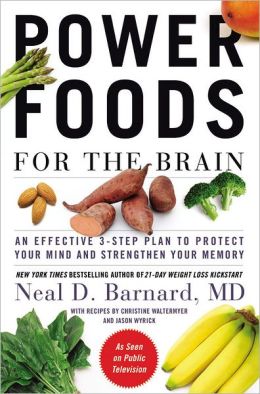
Could your breakfast or lunch be harming your memory?
Are you missing out on the foods that could prevent Alzheimer's disease?
Everyone knows good nutrition supports your overall health, but few realize that certain foods-power foods-can protect your brain and optimize its function, and even dramatically reduce your risk of Alzheimer's Disease. Now, New York Times bestselling author, clinical researcher and health advocate Dr. Neal Barnard has gathered the most up-to-date research and created a groundbreaking program that can strengthen your memory and protect your brain's health.
In this effective 3-step plan Dr. Barnard reveals which foods to increase in your diet and which to avoid, and shows you specific exercises and supplements that can make a difference. It will not only help boost brain health, but it can also reduce your risk of Alzheimer's disease, stroke, and other less serious malfunctions such as low energy, poor sleep patterns, irritability, and lack of focus.
-
The Man Who Says You Can Prevent Alzheimer's -Dr. Oz television show. [Video]
Dr. Oz has new information about the fight against Alzheimer's. Learn how to boost your memory and protect your brain with a simple three-step plan to prevent Alzheimer's! More…
STROKE
-
Preventing Strokes with Diet, Nutrition Facts, 6/2013
Increasing the intake of potassium-rich foods is associated with a significantly lower stroke risk.
The China Study
 The "Grand Prix of epidemiology" and the "most comprehensive large study ever undertaken of the relationship between diet and the risk of developing disease."—The New York Times
The "Grand Prix of epidemiology" and the "most comprehensive large study ever undertaken of the relationship between diet and the risk of developing disease."—The New York Times
 The "Grand Prix of epidemiology" and the "most comprehensive large study ever undertaken of the relationship between diet and the risk of developing disease."—The New York Times
The "Grand Prix of epidemiology" and the "most comprehensive large study ever undertaken of the relationship between diet and the risk of developing disease."—The New York Times
"People who ate the most animal-based foods got the most chronic disease? People who ate the most plant-based foods were the healthiest and tended to avoid chronic disease. These results could not be ignored."
The science is clear. The results are unmistakable.
Change your diet and dramatically reduce the risk of cancer, diabetes, heart disease and obesity.
Respected nutrition and health researcher, Dr. T. Colin Campbell reveals the truth behind special interest groups, government entities and scientists that have taken Americans down a deadly path.
In the final analysis, when we explored many different kinds of relationships between dietary characteristics and disease characteristics in our China data, it turned out that virtually every time we explored one of these relationships—whether it was fiber in colon cancer or some of the antioxidants in some of the cancers, or whether it was the effect of protein as it related to various outcomes—virtually every time we looked, we basically came up with the same conclusion. The closer that these people came to consuming an all plant—based diet, the lower was their risk for chronic degenerative diseases that are so common here in the West, and as I said at the outset, I really found that quite surprising even with my prior data concerning the animal—versus—plant—protein phenomenon on cancer.
T. Colin Campbell Foundation | Foundation Community Site.
Articles
-
The Chronic Disease Food Remedy Journal of Food Science, 10/12.
Cures for cardiovascular disease, cancer, diabetes, and obesity have eluded scientists for decades, but research in nutritional genomics suggests that halting the progression of these diseases may be as simple as a dietary intervention.
Indubitably, the most nutritious foods on the planet are plant foods, and research studies have long indicated an inverse relationship between a high consumption of plant foods and chronic diseases. But recent discoveries in nutritional genomics are unveiling the specifics of why such diets are effective at warding off disease. Plant foods contain hundreds of bioactive compounds—vitamins, antioxidants, and other phytochemicals—that, when consumed, catalyze a variety of changes within the body. More specifically, the bioactive compounds in plant foods interact with cells, enzymes, hormones, and DNA, playing a role in controlling gene expression and cell changes that lead to chronic disease. In essence, the genetic makeup of humans is not static; it is dynamic, and nutrients from foods can sway gene expression in a positive direction.
BLADDER INFECTION
FIBROMYALGIA
Plant-Based Diets for Fibromyalgia, Nutrition Facts.org, 6/ 2103
Both vegetarian and raw vegan diets led to significant improvements in fibromyalgia symptoms
The vegan "Hallelujah diet" appeared to perform the best. When the study was reviewed in the journal Current Rheumatology Reports, the editor noted that it had the most impressive results of any recent fibromyalgia treatment study?three times the improvement that the Mayo Clinic was reporting for their fibromyalgia program. True, it was not a double-blind placebo controlled study, but it's difficult to design such a study when it comes to diet, since people tend to notice when they've been switched to a vegan diet! Raw vegan diets seemed to help; mostly raw vegan diets seemed to help. Eating vegetarian worked; but what about just eating mostly vegetarian? That was the most recent trial. Fourteen fibromyalgia sufferers were put on a mostly vegetarian Mediterranean diet for two weeks and unfortunately did not see significant improvement. Maybe the researchers didn't give it enough time?
Other inflammatory conditions have been successfully treated with semi-vegetarian "flexitarian" diets, though, for example, Dietary Treatment of Crohn's Disease. Cutting down on meat may also help reduce the risk of cataracts (Preventing Cataracts with Diet), obesity (Thousands of Vegans Studied), hypertension (Uprooting the Leading Causes of Death), metabolic syndrome (Metabolic Syndrome and Plant-Based Diets), and diabetes (How to Prevent Diabetes), though there does appear to be a stepwise drop in risk as one's diet gets more and more centered around plant foods.


